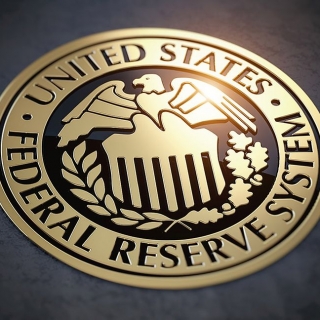


The Federal Reserve's path to interest rate cuts starting in September appeared to widen on Thursday, after a pair of government reports pointed to cooler inflation and signs of potential weakening in the labor market.
U.S. producer prices advanced 2.6% in May from a year earlier, after rising 2.5% in April, the Labor Department reported. Taken together with tamer-than-expected increases in the Consumer Price Index in May, economists estimated that inflation by the Fed's preferred gauge of underlying price pressures, the core Personal Consumption Expenditures Price Index, likely rose in line with the Fed's 2% goal last month.
Economists still expect the Trump administration's tariffs to push up prices and lift inflation later this year, but "the near-term trend remains favorable, enabling the (Fed) to signal next week that it still intends to begin easing policy again later this year," economists at Pantheon Macroeconomics wrote.
They estimate that core PCE rose by just 0.12% in May from April, based on the latest PPI and CPI data. Economists at other Wall Street firms issued similar estimates.
The Fed is nearly universally expected to leave its policy rate in the 4.25%-4.50% range at its June 17-18 meeting. Futures that settle to the Fed's policy rate show traders now expect a quarter-percentage-point reduction by September, with another such move likely in October. Before Thursday's data, traders had expected the Fed to wait until December to deliver a second rate cut. The U.S. central bank cut rates three times in 2024.
A separate Labor Department report on Thursday showed initial weekly claims for jobless benefits held steady at a seasonally adjusted 248,000 for the week ended June 7, while continuing claims jumped to 1.951 million, their highest level since November 2021 and a sign that it is getting harder for unemployed workers to find a new job.
"Americans, especially recent graduates, are worried about how hard it is to find a job," said Heather Long, chief economist at Navy Federal Credit Union. "If layoffs worsen this summer, it will heighten fears of a recession and consumer spending pullback."
Source: Investing.com
Japan's annual inflation rate edged down to 2.9% in November 2025 from October's 3-month high of 3.0%. Core inflation stood at 3.0%, keeping the same pace as in October and aligning with estimates. Mo...
Goldman Sachs sees gold prices climbing 14% to $4,900 per ounce by December 2026 in its base case, it said in a note on Thursday, while citing upside risks to this view due to a potential broadening o...
The BRICS group of countries is increasingly being considered as an alternative for global diplomacy and cooperation amidst increasing tariff and protectionist policies from the United States. A numbe...
Applications for US unemployment benefits fell after a spike in the previous week, underscoring the choppy nature of the data at this time of year. Initial claims decreased by 13,000 to 224,000 ...
Annual inflation in the United States (US), as measured by the change in the Consumer Price Index (CPI), fell 2.7% in November, according to a report by the US Bureau of Labor Statistics (BLS) on Thur...
US stocks closed sharply higher on a triple-witching Friday, with the S&P 500 rising 0,9%, the Nasdaq 100 gaining 1.4%, and the Dow Jones adding more than 180 points, extending gains from the previous session as technology stocks...
European equities closed higher on Friday, with the STOXX 50 up 0.6% and the STOXX 600 rising 0.4% to a fresh record, boosted by expectations of further Fed rate cuts next year and fading bets that the ECB will raise borrowing costs in...
Gold (XAU/USD) Gold (XAU/USD) regains ground on Friday, edging modestly higher after earlier weakness, even as a resilient US Dollar (USD) caps upside momentum. At the time of writing, XAU/USD trades around $4,345, recovering from a daily low near...
 Fed Governor Christopher Waller said Wednesday that the Fed is in no rush to cut interest rates, given the current outlook, according to...
Fed Governor Christopher Waller said Wednesday that the Fed is in no rush to cut interest rates, given the current outlook, according to...
 The Bank of Japan (BOJ) is expected to raise interest rates on Friday to a three-decade high, from 0.5% to 0.75%, signaling readiness for further...
The Bank of Japan (BOJ) is expected to raise interest rates on Friday to a three-decade high, from 0.5% to 0.75%, signaling readiness for further...
 European stocks finished in positive territory on Thursday as traders positioned for central bank decisions today.
The pan-European Stoxx 600 was...
European stocks finished in positive territory on Thursday as traders positioned for central bank decisions today.
The pan-European Stoxx 600 was...
 The United States ordered a blockade of Venezuelan oil tankers because the Trump administration believes President Nicolás Maduro's regime is acting...
The United States ordered a blockade of Venezuelan oil tankers because the Trump administration believes President Nicolás Maduro's regime is acting...